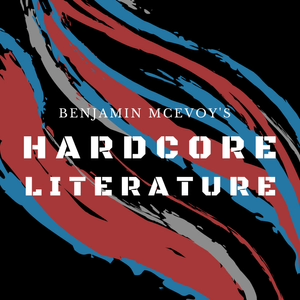
129. A Transfer of Learning bombshell
07/18/22 • 55 min
This episode has such huge implications that I didn't know what to call it. Efficiency and Innovation in Transfer, the actual name of the book chapter, seemed far too dry to put across the fundamental shifts in thinking about pedagogy, assessment, education research design, and cognitive theory that this article suggests (at least to me).
The authors suggest that the current literature on transfer of learning has too negative a view of the possibilty of transfer, and suffers from too many internal contradictions. They propose a new perspective on transfer called Preparation for Future Learning (PFL), as opposed to the generally accepted standard which they label Sequestered Problem Solving (SPS). In short, when you ask people to solve an unfamiliar problem and grade them on whether they get the right answer (SPS), they universally do badly; but when you ask them how they would approach solving the problem, including what questions they would ask (PFL), then you get a completely different perspective - not only do people do much better on the whole, but more educated people tend to do better, showing that education is apparently teaching some more broad kinds of problem solving (which is otherwise very hard to demonstrate). In addition, when you allow students a bit of time to invent solutions to problems at the start of the class before teaching the standard solution, not only do they perform just as well in a test as those who spend the whole time learning the solution, but they far outperform them on measures of transfer of learning, getting in one case almost triple the score of the control groups. Mind-blowing!
When I discovered this article I was slightly shocked and somewhat whiplashed, as I felt forced to change my mind again on discovery learning, to a third position (it has its place at the start of a class learning a new concept, where it can dramatically improve transfer of learning for students). I was sort of ready for it though, as I had been thinking recently that while I had seen a lot of research on discovery learning and more didactic approaches (such as Direct Instruction), I hadn't yet seen anything where the two were used within the same lesson. Well now I have, and the results are astonishing.
Enjoy the episode.
***
Link to paper: https://aaalab.stanford.edu/assets/papers/2005/Efficiency_and_Innovation_in_Transfer.pdf
RELATED EPISODES:
Mention of generative learning: 127. Necessary Conditions of Learning by Ference Marton
Transfer of learning: 98. Range by David Epstein; 108. Expert Political Judgement by Phillip Tetlock; 110. Transfer of Learning by Robert Haskell
Discovery learning: 88. The Failure of Constructivist, Discovery, Problem-based, Experiential, and Inquiry-based Teaching; 90. Discovery learning, the idea that won't die
This episode has such huge implications that I didn't know what to call it. Efficiency and Innovation in Transfer, the actual name of the book chapter, seemed far too dry to put across the fundamental shifts in thinking about pedagogy, assessment, education research design, and cognitive theory that this article suggests (at least to me).
The authors suggest that the current literature on transfer of learning has too negative a view of the possibilty of transfer, and suffers from too many internal contradictions. They propose a new perspective on transfer called Preparation for Future Learning (PFL), as opposed to the generally accepted standard which they label Sequestered Problem Solving (SPS). In short, when you ask people to solve an unfamiliar problem and grade them on whether they get the right answer (SPS), they universally do badly; but when you ask them how they would approach solving the problem, including what questions they would ask (PFL), then you get a completely different perspective - not only do people do much better on the whole, but more educated people tend to do better, showing that education is apparently teaching some more broad kinds of problem solving (which is otherwise very hard to demonstrate). In addition, when you allow students a bit of time to invent solutions to problems at the start of the class before teaching the standard solution, not only do they perform just as well in a test as those who spend the whole time learning the solution, but they far outperform them on measures of transfer of learning, getting in one case almost triple the score of the control groups. Mind-blowing!
When I discovered this article I was slightly shocked and somewhat whiplashed, as I felt forced to change my mind again on discovery learning, to a third position (it has its place at the start of a class learning a new concept, where it can dramatically improve transfer of learning for students). I was sort of ready for it though, as I had been thinking recently that while I had seen a lot of research on discovery learning and more didactic approaches (such as Direct Instruction), I hadn't yet seen anything where the two were used within the same lesson. Well now I have, and the results are astonishing.
Enjoy the episode.
***
Link to paper: https://aaalab.stanford.edu/assets/papers/2005/Efficiency_and_Innovation_in_Transfer.pdf
RELATED EPISODES:
Mention of generative learning: 127. Necessary Conditions of Learning by Ference Marton
Transfer of learning: 98. Range by David Epstein; 108. Expert Political Judgement by Phillip Tetlock; 110. Transfer of Learning by Robert Haskell
Discovery learning: 88. The Failure of Constructivist, Discovery, Problem-based, Experiential, and Inquiry-based Teaching; 90. Discovery learning, the idea that won't die
Previous Episode

128. Nuance
I wanted to talk a bit about some areas in which my thinking about education has improved with the addition of nuance, and about the ways in which thinking can be more nuanced.
- Desirable difficulty - a case where quantification and the awareness of countervailing forces / costs improved my initial, flawed understanding.
- Cognitive load theory - a case where I was so enamoured with the power of the model that I had started to equate the it with truth (or confuse the "map" with the "territory"), but a well-put listener comment made me realise that there are phenomena that the theory cannot account for.
- Motivation - a case where perspectives offered from other cultures and other disciplines undermined my initial confidence in the findings of psychologists.
I also discuss the idea put forward by Ference Marton in discussing the following questions:
- Is learning by yourself better than learning by being taught?
- Does homework enhance learning?
- Is problem-based learning better than lectures for big classes?
- Is individualized learning preferable to group work?
- Is project work a good idea?
Marton writes:
The problem with questions of this kind is that they cannot be answered. It is not that they cannot be answered yet, and it is not because of a scarcity of research funds or a scarcity of good ideas. They are simply imponderable because of the degree of generality. Asking these questions is like asking whether pills are better than operations, or whether a hammer is better than a screwdriver, or whether eating is good for your health.
While I do believe that there are some ideas that can be flatly considered wrong or unhelpful, there is something to say for Marton's view. Ultimately a mature understanding requires a well-developed worldview or philosophy, which can't be transmitted in a single sentence. Questions at the level of generality of "Is eating good for your health?" demand a structure to be put in place explaining the nature of human nutrition and digestion, not simply a "yes" or "no" answer.
Enjoy the episode.
Next Episode

Support the podcast & join the community forum!
You can now support Education Bookcast and join the community forum, where we discuss all things education. Visit https://www.buymeacoffee.com/edubookcast to learn more.
If you like this episode you’ll love
Episode Comments
Generate a badge
Get a badge for your website that links back to this episode
<a href="https://goodpods.com/podcasts/education-bookcast-25447/129-a-transfer-of-learning-bombshell-22118667"> <img src="https://storage.googleapis.com/goodpods-images-bucket/badges/generic-badge-1.svg" alt="listen to 129. a transfer of learning bombshell on goodpods" style="width: 225px" /> </a>
Copy



